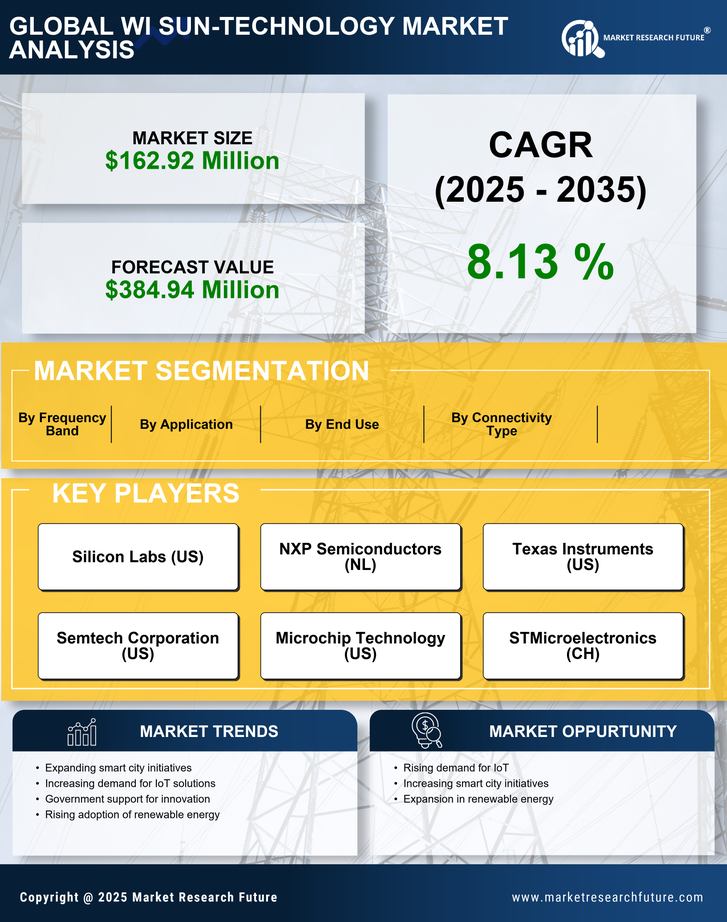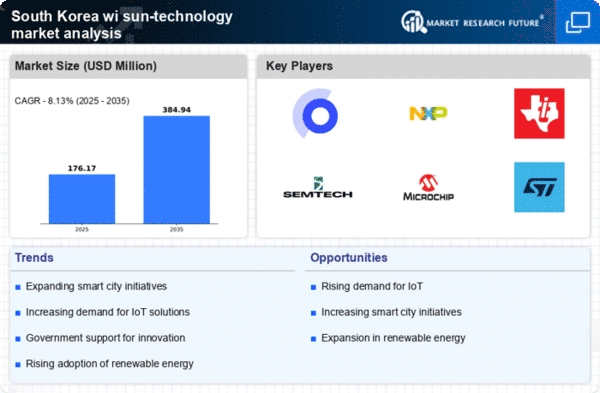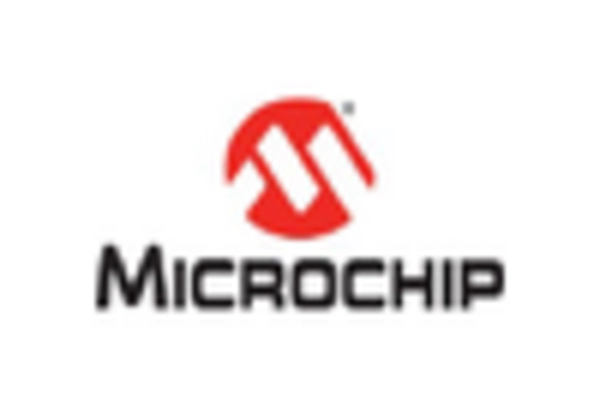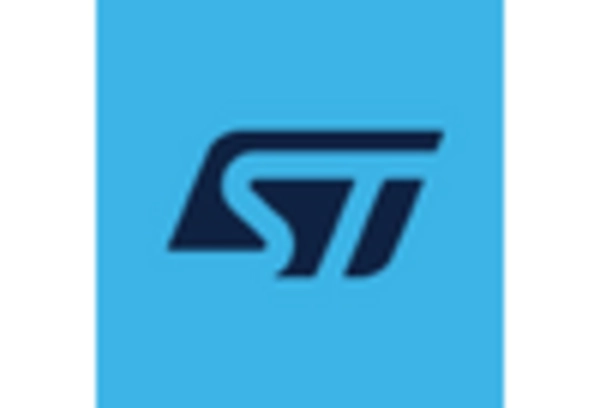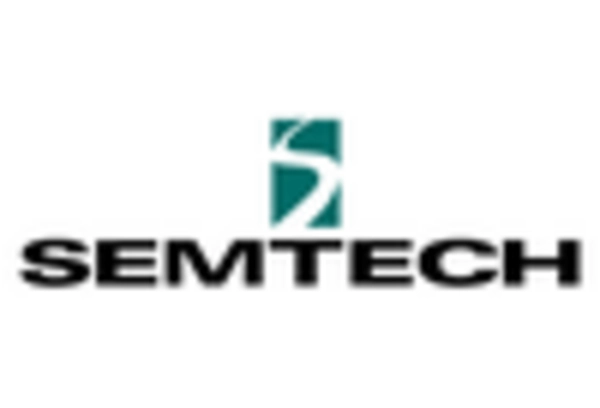Increased Focus on Energy Efficiency
Energy efficiency is becoming a critical driver for the wi sun-technology market in South Korea. With rising energy costs and environmental concerns, businesses and consumers are seeking solutions that optimize energy consumption. The wi sun-technology market offers innovative solutions that enable real-time monitoring and management of energy usage in various applications, including smart homes and industrial settings. The South Korean government has set ambitious targets to reduce energy consumption by 30% by 2030, which is likely to propel the adoption of wi sun-technology. This focus on energy efficiency is expected to enhance market growth significantly.
Expansion of Smart Metering Solutions
The expansion of smart metering solutions is a notable driver for the wi sun-technology market in South Korea. As utility companies transition to smart grids, the demand for advanced metering infrastructure is increasing. Smart meters equipped with wi sun-technology facilitate two-way communication between utilities and consumers, allowing for better energy management and billing accuracy. The South Korean government has allocated $500 million for the deployment of smart meters across the nation, which is anticipated to enhance the wi sun-technology market. This initiative is expected to lead to a market growth rate of 12% annually over the next few years.
Growing Adoption of Smart Agriculture
The wi sun-technology market is also benefiting from the growing adoption of smart agriculture practices in South Korea. Farmers are increasingly utilizing IoT devices and sensors to monitor crop health, soil conditions, and weather patterns. This trend is driven by the need to enhance productivity and sustainability in the agricultural sector. The South Korean government has introduced various programs to support the integration of technology in agriculture, with an estimated investment of $300 million in smart farming initiatives. This shift towards smart agriculture is likely to create new opportunities for the wi sun-technology market, fostering innovation and growth.
Rising Demand for Smart Infrastructure
The wi sun-technology market is significantly influenced by the rising demand for smart infrastructure in South Korea. Urbanization and population growth have led to an increased need for efficient energy management systems and smart grid technologies. The government aims to implement smart city initiatives, which are expected to require extensive deployment of wi sun-technology for seamless connectivity among devices. It is estimated that the smart infrastructure sector will reach a valuation of $10 billion by 2027, with wi sun-technology playing a pivotal role in achieving these objectives. This trend indicates a robust growth trajectory for the wi sun-technology market.
Technological Advancements in Communication
The wi sun-technology market in South Korea is experiencing a surge due to rapid advancements in communication technologies. Enhanced connectivity solutions, such as low-power wide-area networks (LPWAN), are becoming increasingly prevalent. These technologies facilitate efficient data transmission over long distances, which is crucial for smart city applications and industrial automation. The South Korean government has invested approximately $1 billion in research and development to promote these innovations. As a result, the wi sun-technology market is projected to grow at a CAGR of 15% from 2025 to 2030., driven by the demand for reliable and scalable communication solutions.
